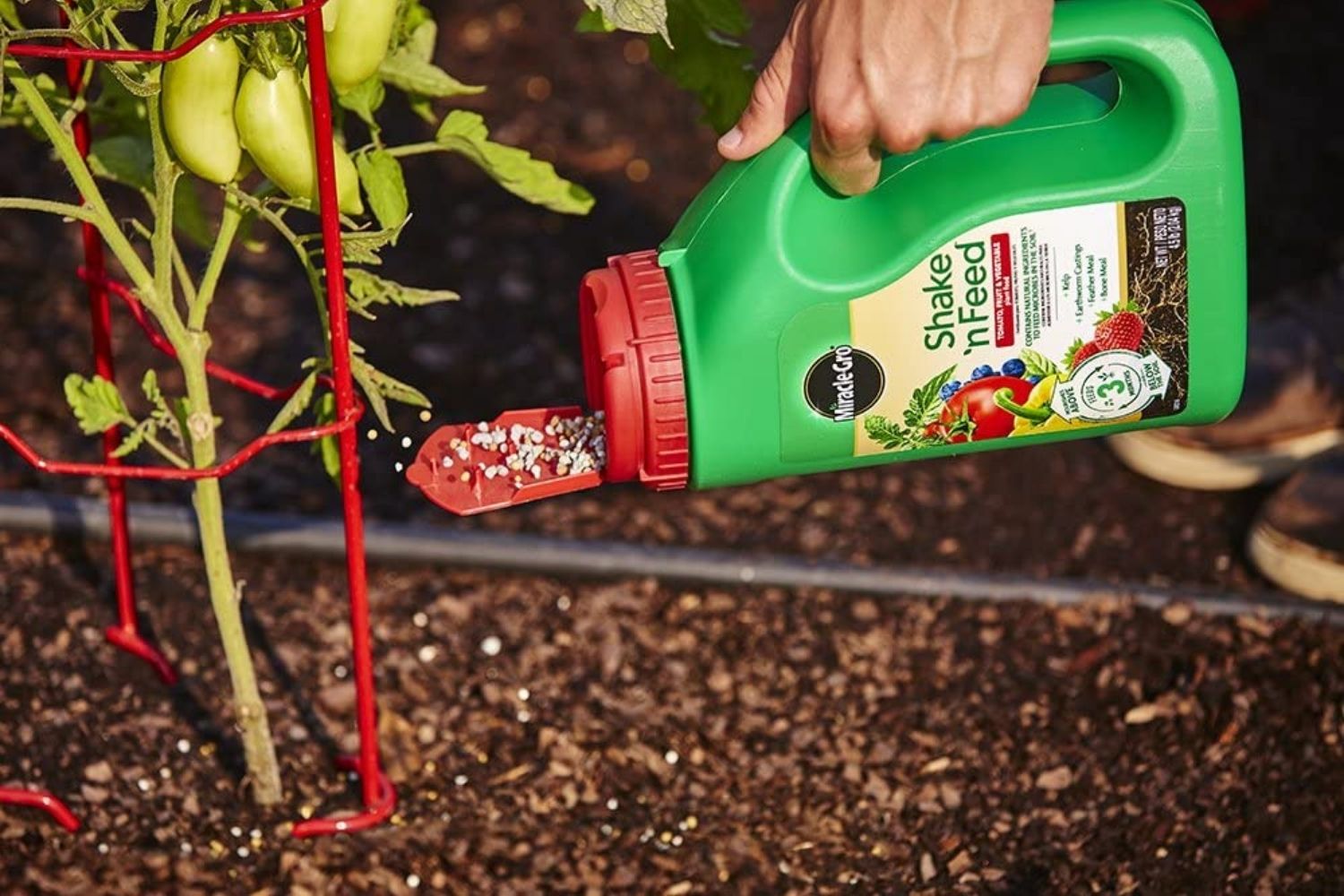Best Fertilizers for Peppers: Improve Growth and Flavor with Our Leading Picks
Best Fertilizers for Peppers: Improve Growth and Flavor with Our Leading Picks
Blog Article
Organic Vs. Synthetic Fertilizers: Which Is Best for Supporting Healthy And Balanced Pepper Plants?
In the world of nurturing healthy and balanced pepper plants, the option in between organic and artificial plant foods stands as a critical decision with far-ranging effects. While both alternatives goal to give vital nutrients to sustain plant development, the subtleties of their influence on the soil, plant health, and the environment stimulate a debate that echoes throughout the gardening area. Comprehending the distinct benefits and prospective risks of each plant food kind is important for pepper growers looking for to optimize their yields while maintaining a sustainable and eco-conscious method.
Advantages of Organic Fertilizers
Organic plant foods use an environmentally-friendly and sustainable strategy to nourishing pepper plants, giving necessary nutrients without using synthetic chemicals. These all-natural plant foods are obtained from natural resources such as compost, manure, bone meal, and seaweed, promoting soil wellness and biodiversity. Unlike synthetic fertilizers, organic choices release nutrients gradually, making certain a consistent and balanced supply for pepper plants to flourish.
One substantial advantage of organic plant foods is their ability to boost dirt structure and water retention. By boosting dirt health, organic fertilizers advertise beneficial microbial activity, which aids in nutrient uptake by pepper plants. Furthermore, organic fertilizers decrease the threat of chemical run-off, securing water resources from contamination and guarding the environment.
Furthermore, natural plant foods add to long-lasting dirt fertility by advertising the development of advantageous soil microorganisms. These organisms help break down organic issue, launching nutrients in a type that is quickly obtainable to pepper plants. best fertilizers for peppers. By promoting a healthy dirt community, natural fertilizers support sustainable pepper cultivation practices that benefit both plants and the setting
Downsides of Artificial Plant Foods
Artificial fertilizers, in comparison to their natural counterparts, pose numerous drawbacks when utilized to nurture pepper plants, impacting both plant health and environmental sustainability. One major disadvantage of synthetic plant foods is their tendency to seep nutrients from the soil rapidly. This rapid leaching can bring about vitamins and mineral inequalities in the soil, triggering plants to deal with toxicities or shortages. Furthermore, synthetic fertilizers can harm beneficial soil organisms, such as earthworms and valuable microorganisms, disrupting the dirt community's balance.
Additionally, the overuse of synthetic fertilizers can add to water air pollution. Excess fertilizers not taken in by plants can remove into water bodies, resulting in eutrophication, where algae flowers diminish oxygen levels in the water, hurting marine life. Moreover, artificial fertilizers are normally originated from non-renewable sources, such as fossil fuels, adding to carbon emissions and environmental destruction throughout their manufacturing.
Nutrient Absorption Contrast
When comparing artificial and organic fertilizers in terms of visit this website nutrient absorption, natural fertilizers have the benefit of offering a more balanced and slow-release source of nutrients. Organic fertilizers include a range of macro and trace elements that are not only beneficial for the plants however also advertise healthy dirt microbial task, which aids in nutrient uptake.
In addition, organic plant foods boost soil framework and water retention ability, permitting pepper plants to gain access to nutrients much more effectively. This improved dirt high quality helps with root development, allowing better nutrient absorption. Synthetic fertilizers, although initially increasing plant growth as a result of their high nutrient concentrations, might hinder long-term nutrient absorption by derogatory soil wellness gradually.
Environmental Effect Considerations

On the various other hand, synthetic fertilizers, although typically more immediately offered and concentrated to plants, can have damaging impacts on the atmosphere if not used correctly (best fertilizers for peppers). Their manufacturing needs high energy inputs, leading to greenhouse gas emissions and adding to environment adjustment. The runoff of excess artificial fertilizers can pollute water resources, leading to eutrophication and harming water environments.
Finest Plant Food Practices for Peppers
When fertilizing pepper plants, enhancing nutrient uptake and minimizing environmental influence are essential factors to consider. To attain this, it is necessary to adhere to finest plant food methods customized to the specific needs of pepper plants. One vital method is to do a soil test before using any kind of fertilizers. This test can figure out the pH degree of the dirt and identify any nutrient deficiencies, guiding you in selecting the most appropriate plant food solution.
One more crucial method is to fertilize pepper plants at the best time. Usually, peppers gain from obtaining plant food at growing and afterwards once more when they begin to flower. Over-fertilizing can cause nutrition discrepancies and damage the plants, so it is crucial to comply with advised application rates.
Additionally, selecting a well balanced plant read food with an NPK ratio that fits pepper plants' demands is fundamental. Organic plant foods, such as garden compost or manure, can be outstanding choices as they launch nutrients slowly and enhance dirt framework in time. Synthetic fertilizers can offer a quick nutrient boost when required. Inevitably, combining synthetic and natural plant foods sensibly can aid support healthy and balanced pepper plants while lessening ecological effect.
Verdict

Organic fertilizers offer a lasting and environmentally-friendly approach to nourishing pepper plants, supplying vital nutrients without the use of synthetic chemicals. Unlike artificial plant foods, natural alternatives launch nutrients gradually, ensuring a stable and well balanced supply for pepper plants to thrive.
Artificial plant foods, in comparison to their natural equivalents, position different drawbacks when used to nurture pepper plants, affecting both plant health and environmental sustainability. When comparing organic and artificial plant foods in terms of nutrient absorption, natural plant foods have the advantage of supplying a more well balanced and slow-release source of nutrients.Furthermore, natural plant foods improve soil framework and water retention capability, permitting pepper plants to access nutrients extra successfully.
Report this page